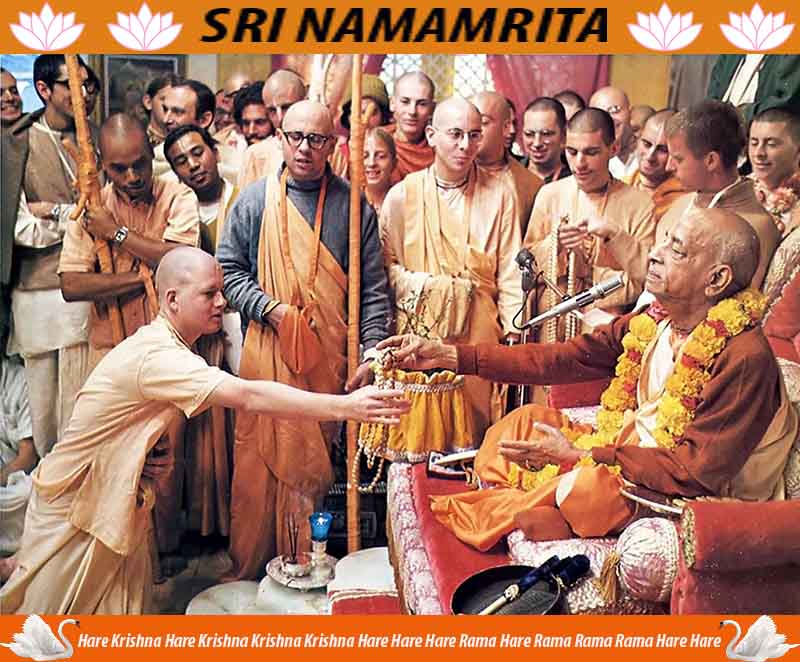
In the present age of Kali, it is not possible to find expert mantra chanters; therefore all the sacrifices recommended in the Vedas are forbidden in this age. The only sacrifice recommended in this age is the chanting of the Hare Krsna mantra because in this age it is not possible to accumulate the needed funds for performing sacrifices, not to speak of finding expert brahmanas who can chant the mantras perfectly...
It is stated here that many thousands of demigods named Rbhus became manifested because of the oblations offered in the fire and the chanting of the hymns from the Yajur Veda. Brahmanas like Bhrgu Muni were so powerful that they could create such powerful demigods simply by chanting the Vedic mantras. Vedic mantras are still available, but the chanters are not. By chanting mantras or chanting the Gayatri or rg−mantra one can attain the results one desires. In the present age of Kali it is recommended by Lord Caitanya that simply by chanting Hare Krsna one can attain all perfection...
The word brahma−tejasa, used in this verse, is significant. In those days, brahmanas were so powerful that simply by desiring and by chanting a Vedic mantra, they could accomplish very wonderful effects. But in the present age of degradation there are no such brahmanas. According to the pancaratrika system, in this age the entire population is supposed to consist of sudras because the brahminical culture has been lost. But if anyone displays the signs of understanding Krsna consciousness, he should be accepted, according to Vaisnava smrti regulations, as a prospective brahmana and should be given all facilities to achieve the highest perfection. The most magnanimous gift of Lord Caitanya's is that the highest perfection of life is available in this fallen age if one simply adopts the process of chanting Hare Krsna, which is able to bring about the fulfillment of all activities in self−realization.
¯Srimad−Bhagavatam 4.4.32−34
It is the practice of the brahmanas conversant with the science to pronounce a Vedic mantra in the right accent. The combination of the mantra and Sanskrit words must be chanted with the right pronunciation, otherwise it will not be successful. In this age the brahmanas are neither well versed in the Sanskrit language nor very pure in practical life. But by chanting the Hare Krsna mantra one can attain the highest benefit of sacrificial performances. Even if the Hare Krsna mantra is not chanted properly, it still has so much potency that the chanter gains the effect.
¯Srimad−Bhagavatam 4.13.27
A Vedic sacrifice is not an ordinary performance. The demigods used to participate in such sacrifices, and the animals sacrificed in such performances were reincarnated with new life. In this age of Kali there are no powerful brahmanas who can invite the demigods or give renewed life to animals. Formerly, the brahmanas well conversant in Vedic mantras could show the potency of the mantras, but in this age, because there are no such brahmanas, all such sacrifices are forbidden. The sacrifice in which horses were offered was called asvamedha. Sometimes cows were sacrificed (gavalambha), not for eating purposes, but to give them new life in order to show the potency of the mantra. In this age, therefore, the only practical yajna is sankirtanayajna, or chanting of the Hare Krsna mantra twenty−four hours a day.
¯Srimad−Bhagavatam 4.13.25

